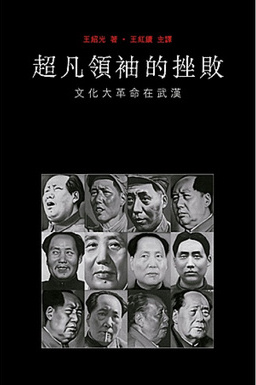Wang Shaoguang (1954-), a political science scholar, taught at a middle school in Wuhan from 1972 to 1977, and was admitted to Peking University after the Cultural Revolution, where he was in the same class with Li Keqiang. Wang received a bachelor's degree in law from Peking University in 1982, a master's degree in political science from Cornell University in 1984, and a doctorate in political science from Cornell University in 1990. He taught in the Department of Political Science at Yale University from 1990 to 2000, and in the Department of Politics and Public Administration at the Chinese University of Hong Kong from 1999 to 2017, and later served as the Cheung Kong Chair Professor at the School of Public Administration of Tsinghua University. Wang is currently a Distinguished Research Fellow of the Institute of State Governance at Huazhong University of Science and Technology and Professor Emeritus of the Chinese University of Hong Kong.
Wang's research areas include comparative politics, political economy, Chinese politics, East Asian Newly Industrializing Economies, central-local relations, democratic theory and practice, and his major publications include *The Defeat of an Extraordinary Leader: The Cultural Revolution in Wuhan*, *Challenging the Myth of the Market*, and *The Bottom Line of Separation of Powers*, etc. In 1993, Wang co-authored *A Study of China's State Capacity* with scholar of economics Hu Angang, which provided the theoretical foundation for China's tax reform.
Wang's research areas include comparative politics, political economy, Chinese politics, East Asian Newly Industrializing Economies, central-local relations, democratic theory and practice, and his major publications include *The Defeat of an Extraordinary Leader: The Cultural Revolution in Wuhan*, *Challenging the Myth of the Market*, and *The Bottom Line of Separation of Powers*, etc. In 1993, Wang co-authored *A Study of China's State Capacity* with scholar of economics Hu Angang, which provided the theoretical foundation for China's tax reform.
